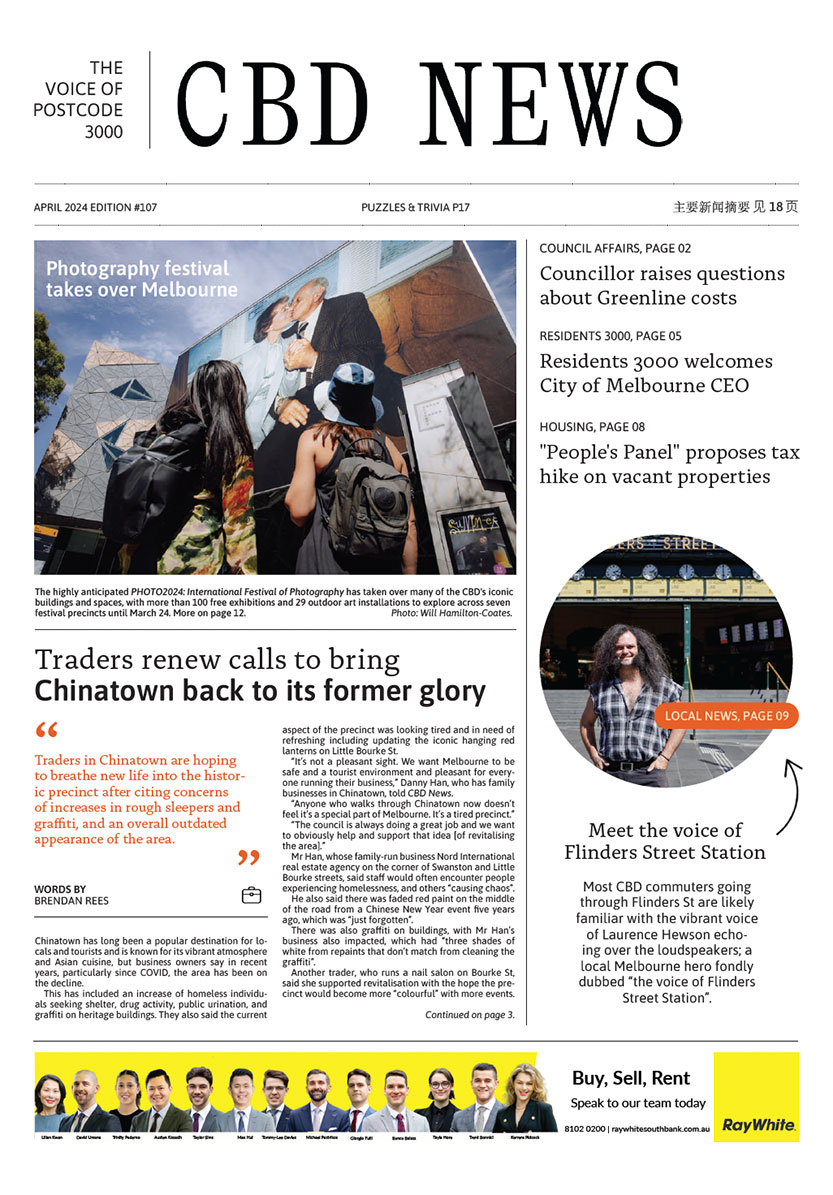“Melbourne’s Stonewall” retold in new short film
By Meg Hill
Twenty-five years after New York’s Stonewall riots, more than 450 members of the Melbourne LGBT community were falsely detained and strip-searched during a police raid on the Tasty nightclub.
The venue was technically on Flinders St, but attendees entered via the back entrance – 331 Flinders Lane – for safety.
Police arrived at about 2am, turned the music off and the lights on and told everyone to put their hands on their heads or on the wall next to them.
The victims were searched and released slowly, one-by-one, some having been brutalised and detained for over seven hours.
But there’s one main difference between the Tasty raid and the Stonewall riots.
“I think why it’s not remembered is that no one fought back,” said director Logan Mucha, whose new short film We’re All In This Together includes an account of the raid.
“It just wasn’t the right place or time to have a kind of Stonewall uprising, the police just did what they did and nobody fought back.”
Mr Mucha’s new filmexplores Melbourne’s queer history – Shaun Miller’s first-person account of the Tasty raid is one of five stories focused on.
“In the interviews I did with Shaun it was like they couldn’t fight back because the police in Victoria at the time were known for being extremely violent,” Mr Mucha said.
“In the days after they got lawyers and had a big campaign. They won all this money, but there was no mass movement.”
“They were all released separately, it wasn’t like they were on the street gathered together. They were fed out of the club at night and didn’t have phones.”
The “hybrid-documentary” is based on interviews with five participants in Melbourne’s queer history.
The stories of Sally Conning, Jude Munro, Lizzi Crag and a queer Ugandan asylum seeker are presented along-side Shaun Miller’s account of the Tasty raid.
Sally Conning is a transgender woman who grew up in Melbourne in the ‘60s. Jude Munro was one of the founders of Melbourne Gay Liberation. Lizzi Craig was a nurse at the forefront of the ‘80s AIDS crisis.
The Ugandan asylum seeker fled to Melbourne after recent attempts to further criminalise homosexuality and a resurgence of homophobic violence in Uganda.
Monologues based on interviews with the five subjects were performed by queer actors, whose personal response to the stories was also included.
Motivation for the short film was partly derived from Mr Mucha’s own lack of knowledge of Melbourne’s queer history.
“I’ve been doing queer docos for about the last 10 years. My first feature film was about gay rights in Belarus and the first pride march they had,” he said.
“But I came to this realisation I had no idea about Melbourne’s queer history.”
It was for this reason that Mr Mucha filmed and included the actors’ answers to questions about the history.
“I thought if I don’t know anything about it and this is kind of what I do, then obviously younger people don’t know anything about it.”
The film’s screening at the Melbourne Queer Film Festival (MQFF) sold out in March. It was followed by a panel discussion between Mr Mucha and the five people whose stories are featured in the film.
The short monologues were created by sifting through 10 hours of interviews, a process Mr Mucha hadn’t initially been anticipating.
“I had this idea when I first started at the Australian Lesbian and Gay Archives that I was going to find these perfectly written monologues.”
“I was hoping for something that didn’t really exist. I found all the stories I wanted to tell but I couldn’t find the information in a nicely written first person monologue.”
Mr Mucha reached out through networks to find the five people whose stories he could tell, and then began a process of relationship building. This took “six or seven months”.
He said to have them together in the same room at the MQFF was special: “A nice capstone for the film I think.”
While a waiting game begins now, with the film is being entered into a number of festivals around the world, Mr Mucha hopes that the young queer community in Melbourne can learn a bit from the stories.
“They were such pioneers of activism, they did such amazing things. I think we should take some of that on.”
“We should take that fighting spirit a bit into what we do.”

Backloading across borders with Transcorp – navigating interstate moves with ease






 Download the Latest Edition
Download the Latest Edition